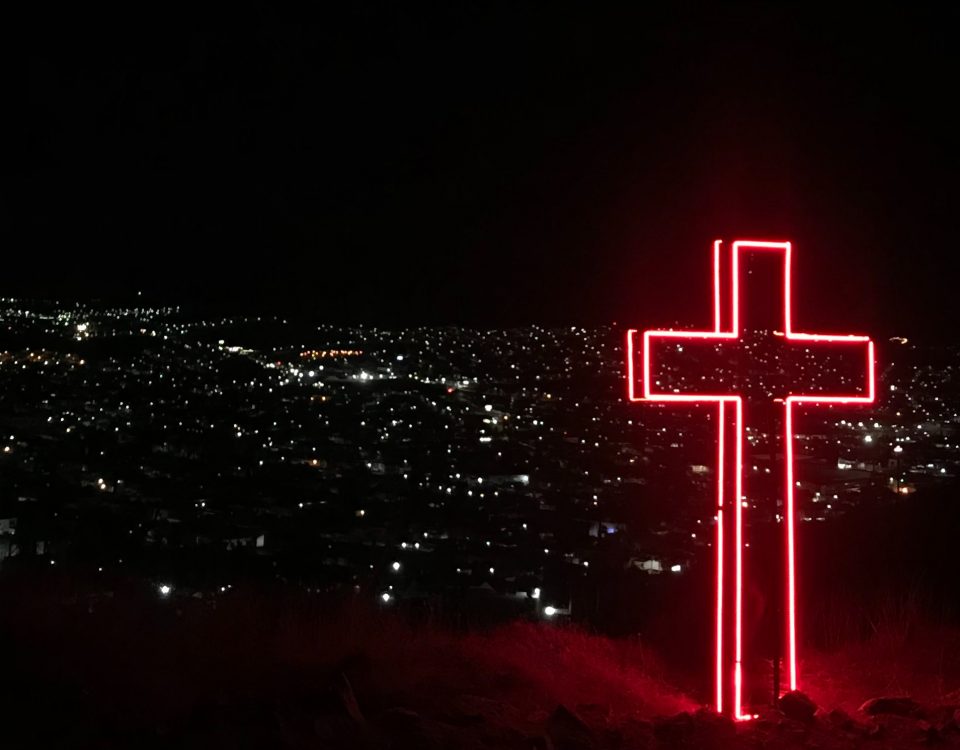
Marriage and Ministry: Keeping it in Check to Keep it Intact
October 23, 2017
Spiritual Gifts: We are Gifted & Called to Minister
October 30, 2017The Pastor and the Business Person

In this episode, Dr. Darrell L. Bock and Tom Nelson discuss work and the pastorate, focusing on the church’s relationship to the business world.
00:15 Nelson’s background integrating a theology of work with ministry
03:30 How the concept of faith and work entered Nelson’s ministry
06:30 The importance of Genesis to biblical theology of work
11:45 How did understanding a biblical theology of work affect your ministry?
EXCERPT FROM TRANSCRIPT:
Tom Nelson:
But yeah, I was committed to teaching the word, to helping people walk closer to Jesus in their own private walk with God, and helping them with their families and their relationships. That was my primary discipleship paradigm, but that’s where I focused before. And I missed some pretty significant aspects of being a faithful and fruitful pastor and equipping people for the majority of their life which is for most of us, whether we’re paid or not paid, in our workplace.
Darrell L. Bock:
That’s right. And I like to say when we divide up life that way, and we never speak into the space where people spend most of their time, we actually end up supporting unconsciously supporting the secular-sacred divide in many ways.
Tom Nelson:
We do in that sort of platonic dualism and that kind of dualism not only violate scripture, it violates how we were created to live a more seamless God-glorifying life. So to break that up in pieces is to violate the very nature of how we were made and how we were redeemed in Christ. And yet it’s very easy to default into a compartmentalized world, this is my church world, this is my spiritual world, this is my work world.
Darrell L. Bock:
And Gods here, and God is here, and I am still trying to figure out why God is there and how that works.
Tom Nelson:
Yes.
Darrell L. Bock:
And the roots of this change I take it went back to, I mean, was it kind of, did you stumble into it, or were you doing a series at one point in time, or did someone confront you? How did you sense the dissonance?
Tom Nelson:
Well, mostly in life, I stumble. The question is whether it is backwards or forwards (laughs), but some intentionality. I mean, I was taught since I was a boy, certainly at Dallas seminary while I was here, take seriously, the text. So my particular interest was in Hebrew, in particular, a group of words called the tamim word groups. There are many Old Testament, word groups in Torah that kind of frame the trajectory of the biblical story. So this tamim idea is that life is meant to be integral, a seamless idea. And yet I was finding myself in a very bifurcated and compartmentalize ministry. So I began to rrestudyparticularly Genesis and some of this Hebrew foundation of the life God designed for us that is redeemed in Christ. I began to reread the reformers. I mean, I read them in church history class, but I began to go woah, I’m really missing something.
Darrell L. Bock:
So you got reformed on the reformers?
Tom Nelson:
Well, I knew the solas. But I didn’t understand the central thread of recovering vocations. You know Martin Luther a classic example, I would love to meet him. Maybe I will some day or so I hope. He would say the lowest caste worker is the milkmaid. Think of the person and O’Hare airport cleaning the bathroom next to you.
Darrell L. Bock:
Right, right, right.
Tom Nelson:
And the priest, doing the sacred sacramental function of the Eucharist is done unto God as the same value of worship.
Darrell L. Bock:
right.
Tom Nelson:
And the priest, doing the sacred sacramental function of the Eucharist is done unto God as the same value of worship. I’m like, woah. So yeah the reformers really got this, not only the priesthood of believers but the importance of Monday. And worshipping God and being formed in Christ and living out the gospel on Monday. So yeah I became more and more convinced that I was, I’d embraced an impoverished biblical theology and an impoverished pastoral paradigm. And I needed to make some adjustments to be faithful.
Darrell L. Bock
So if we’re going to talk about discipleship, we’ve got to talk about discipleship as is applies all the time, which includes that 9 to 5 Monday to Friday slot.
Tom Nelson:
Yeah, and again, I hadn’t thought about the primacy of the work as it relates to the Imago Dei and the image of God. And certainly Jesus as a carpenter and how that fit into the story. So yeah I just if you’d asked me 25 years ago, if I was discipling people for Monday, I would have said yeah. But it probably would have been more focused on marriage and their relationships and their own walk with God, which is important or maybe some evangelism in the workplace, but I didn’t have the fullness of what that meant.
Darrell L. Bock:
Yeah, we’ll come back to this because this is an important theme. Let’s talk about the importance of Genesis. Quickly explain to us how you see Genesis one and two feeding into all of this.
Tom Nelson:
So we see this scripture is having one ultimate author I trust. And having one author there is coherence as I think you say, well, narratival or canonical coherence. So I spent more time in my sort of interpretive framework and looking at the whole landscape of scripture, so certainly honoring the individual pericopes and the individual sections of scripture, but that’s where I started in Genesis and looked more carefully in Genesis and really began to see things I had not seen before. I know you don’t suffer from this but a great danger, Rabbi Abraham Joshua Heschel said that the danger in life is to see what we know rather than know what we see. So I slowed down and looked really carefully at what the text said. Somebody taught me that well. A professor that’s sitting next to me.
So when I went back to Genesis with fresh eyes, not novel eyes, I began to see how central that work was to the image of God and to the biblical story and to fruitfulness and the cultural mandate. And then I began to see that was Genesis one it was this sense of fruitfulness, both pro-creativity and productivity. And then Genesis 2 came into focus. The language of helper. But helper for what? Of course, there is marriage, but then there’s work, work is central. And then I saw Genesis 3 for the first time that made so much sense to me, that when sin and death entered the world there’s this not only vandalization of shalom, there’s this vandalization of this tamim idea, that the Imago Dei is vandalized both in pro-creativity and productivity. Because what do you see first? The curse to the woman is parah, this sense of pro-creativity that she has pain in childbirth, but also there is curse on productivity because there’s thorns and thistles. I had not seen that before, the cohesiveness and coherence of Genesis one, two and three, and then I think we see that then we begin to see how central this idea working for the glory of God is and I think we see how central this idea is of work and worship are designed to be and how the gospel restores that.
Darrell L. Bock:
The word I just come from San Francisco talking to Young millennials, and I told them the word that has become more and more and more important to me the longer I study scripture and it’s a word that wasn’t in my lexical register very much with my study is the word stewardship, being good stewards, managing the garden well. The call is to manage this creation that God has given us, and that stewarding involves all kinds of levels of service and engagement in which we help one another function in a big society. And the part of shalom is when that, is when those cogs turn nicely, right? And sometimes that doesn’t happen.
Tom Nelson:
That’s exactly right.
Darrell L. Bock:
Oh and another thing I like to say is we talk about marriage we’ll talk about our community will talk about our schools we’ll talk about our politics you go through the list what’s happening from 9 to 5? A lot of silence.
Tom Nelson:
A lot of silence.
Darrell L. Bock:
Yeah.
Tom Nelson:
Deafening silence.
Darrell L. Bock:
And to the point where I tease our pastoral ministry department now and say, rather than saying don’t use sports illustrations, maybe you should use some illustrations from 9 to 5, but keeps these sports illustrations.
Tom Nelson:
Once in a while.
Darrell L. Bock:
Okay so, so that was the before. And then you realize this. And what did you do next?
Tom Nelson:
Well, I realized it, I prayed some out of desperation. I had some conversations with elders and leadership around the text. It has to flow from a theological conviction, and when my leadership team looked at the text with me and said yeah. So what are the implications, right? What are the practical implications? And that set us on a journey of changing and adjusting local church culture. It’s not just a program. It changes some of the artifacts of language, priorities –
Darrell L. Bock:
You’re injecting a fresh set of values and making the point that we want you to live and breathe this.
Tom Nelson:
Yes exactly. So I’d say the most definitive moment is when I stood before my congregation out of my own, I guess stupidity and also hope integrity and ask them for forgiveness. I mean, I stood before my congregation and confessed my malpractice, I called it pastoral malpractice. It wasn’t financial embezzlement or sexual impropriety or anything thankfully, but it was very gracious in the sense that they had trusted me to be faithful to my vocation and out of my theological ignorance I had not been faithful. So I asked them to forgive me and I said from this day we’re going to focus our discipleship on equipping you for the majority of your life. And there was kind of a little bit of pin drop silence. Like –
Darrell L. Bock:
Where did that come from?
Tom Nelson:
We can’t trust you to teach the word well. But there was enough I think trust to say this is what the scripture teaches and we want to live more fully into that. And we’ve always said that the gospel speaks into every nook and cranny of life. We just weren’t living it out in the local church.
Darrell L. Bock:
Okay.
Tom Nelson:
So it was a little bit of pin drop silence.
Darrell L. Bock:
Ok, so now we come to the after. So what does after look like? Where did you start with this? Where did you begin?
Tom Nelson:
Yeah, I started with our elders and leaders, and then I did a preaching a sermon series. It was called curse of the cubicle. And we actually in our we now have multiple campuses we originally And we actually, in our we now have multiple campuses, on our original campus, it’s this situation where we had a cubicle, a workplace cubicle as a prop when I preached this sermon series. And it was an 8 week series on work.
Darrell L. Bock:
And you just sat there and you didn’t do anything?
Tom Nelson:
I sat there some. The no I think I mostly stood, but it communicated and brought Monday into Sunday. It’s not just about connecting Sunday and Monday, it’s about bringing Monday into Sunday. And that was, you know we could say that as a preacher was transformational and the spirit of God had worked in people’s lives and people would come up to you and say I’ve always felt like a second-class citizen, this is the first time a pastor has even cared to talk about this. And now I’m seeing it in scripture. I am seeing it in terms of Christ being a carpenter, I’m seeing the connections and I’m understanding my workplace much differently. So that said our church, I think that sermon series. And then, out of that sermon series, we wrote the book Work Matters. People came to us and said we need to do this so that began, and we began to think about discipleship and language, and Sunday morning benedictions and our liturgy adjustments and things like that, and pastoral prayer began to change.
Darrell L. Bock:
Did you, because I know some churches do this, did you also do some different kinds of commissioning, service is probably too long a word, but commissioning actions to affirm people in the various roles that they have in their work?
Tom Nelson:
Right we began to live that out as the priesthood of believers and on a Sunday morning, sure we would commission a short-term cross-cultural missionary, because we value that, or someone going to seminary, but we also commission people who were going into education or business, blue collar kind of workers and we do that periodically still. We call it this time tomorrow. And churches around the country are increasingly doing this. It’s a brief interview with a member of the congregation and we ask 3 questions. And the questions are, what do you love about your work? What do you find most meaningful? What do you do? What do you find most challenging? And how can I pray for you? And you would not believe how the congregation, when sometimes they yawn during my sermons, sad to say, or their phone goes off, everybody is locked in on that moment in a worshipful posture like a bird dog. It’s just it’s amazing how people connect with fellow parishioners who are trying to live their faith out on Monday. It is transformational.
Darrell L. Bock:
Yeah, I just did a little consulting time with Dallas county sheriffs. And my first question to them was, as we were talking about team building and that kind of thing, was explain to me what motivates you to do your work other than the fact that you’re earning a check. And it was amazing. The thought people gave to why they were doing what they were doing, and, of course, you know a sheriff is in danger. I mean, they, you know one of the guys had some to jail so all the bad guys show up in his neck of the woods. You know one of the women just came out and said I view it as my service to God. And wonderful, articulate, African American lady just stepped forward and said this is my ministry. And saw it very much in those terms. And so you get a sense that there are a lot of very dedicated people out there who are actually looking to the church to help them think through that part of their life and that part of their day.
Tom Nelson:
I agree. There’s just a longing to have their faith connect and their church community life connect with where they spend the majority of their time. That God has called them there to worship him and serve others.
Darrell L. Bock:
So another thing that you did I understand is you began to venture out from your own cubicle. Right?
Tom Nelson:
Yes.
Darrell L. Bock
You’re still studying the word and preparing these messages because you are committed to the text. But you were using the other parts of your day differently. How did that work?
Tom Nelson:
Yeah, I think that’s one of the biggest practical changes because if our vocational paradigm adjusts to make it more theologically robust then our on the ground praxis changes. So I would say a couple of things. One is I began to pray differently for my congregation or more comprehensively, that’s probably a better word to say. I was more aware of their needs and what they were facing across their vocational spectrums. Part of that came out of I hope from a greater humility and curiosity and less vocational insularity that led me to a praxis that our staff is deeply enmeshed in, just like a hospital visit was workplace visits. Workplace visits became not an abnormal routine of the week but a normal part of the week for our pastors. So that workplace visit was probably the most practical, tangible, schedule change during the week and it profoundly changed our staffs’ preaching, prayer, our relationship with our parishioners, and I would say that was the number one thing that changed.
Darrell L. Bock:
And what do those look like? I mean, do you go for lunch and then hang around or go and then have lunch? Do they take different forms?
Tom Nelson:
Yeah. They do take, they take different forms. There has to be the proper protocol of asking permission. You don’t drop in on someone wherever that workplace is and there’s often security or like in medical HIPPA rules. So you have to be respectful. So you set it up ahead of time, you ask permission of your parishioners. Sometimes you can actually go in the workplace. Sometimes whether it’s a factory or something, you need to have coffee with them in a lunchroom or near there, but go near there. But a lot of workplaces you can actually visit if you set it up ahead of time. And there’s a proper protocol to doing it well. Come with that teaching attitude, humble attitude, a curious observation. See often parishioners think we’re the experts, we think we’re the experts on everything we’re really not. We have a small layer of expertise so it’s beautiful in the priesthood of believers to seek out their expertise and learn.
Darrell L. Bock:
Right.
Tom Nelson:
So it is assuming the posture of a humble learner and getting permission, and I can tell you all kinds of stories about parishioners visited within the workplace. But it is profoundly transformational In your discipleship relationship with that parishioner.
Darrell L. Bock:
Because you’re seeing how they live and what they are all about that kind of thing.
Tom Nelson:
Yes, and you know how to pray for them. There’s a deep bond for many that you have as a pastor that you would never have if you only focused on their relational life or their physical health or their spiritual life. Share on X




2 Comments
KISS: Keep It Simply Simple.
Thank you for sharing this thought Brother! We couldn’t agree more!